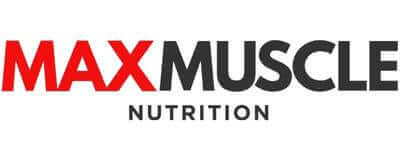Picture this: it’s 3 AM, you’re awake because you checked your phone one too many times. Meanwhile, your muscles are somewhere crying out for H‑GH (that’s Human Growth Hormone, not Hugh Jackman) and your strength gains are tap dancing away in the distance.
Yes, sleep really matters for fitness. Ignore it, and you might as well be pumping air. Embrace it, and your body becomes a well-oiled machine that recovers faster, lifts heavier, and looks sharper.
🌙 Why Sleep is Not Just for the Weak

Sleep isn’t just “rest mode.” It’s when your body runs repair, upgrade, and maintenance routines you didn’t even know it had.
-
A single night of total sleep deprivation creates an environment in your muscles that is pro‑catabolic (more breakdown) and reduces muscle protein synthesis—the building block process for muscle. PMC
-
Poor sleep quality or duration is linked with decreases in muscle mass and increases in fat when tracked long term. BioMed Central
-
Inadequate sleep also hurts strength: performance in compound lifts dips when you’re tired. PubMed
So yes, sleep isn’t optional—it’s essential.
💡 The Sleep‑Muscle Recovery Mode: How It Works

Here’s what goes down during good sleep that helps your fitness:
-
Hormone Regulation
Deep sleep stages trigger the release of growth hormone, which boosts recovery, repairs muscle microtears, and helps build strength. Meanwhile, poor sleep raises cortisol (that stress hormone) which works against growth. UCHealth+1 -
Protein Synthesis During Sleep
Even while you snooze, your muscles use that time to synthesize protein—repairing damage from workouts. Pre‑bed protein (especially) helps support that. PMC -
Restoring Energy & Clearing Inflammation
Sleep reduces inflammatory markers, helps your immune system recover, restores glycogen stores, and primes your brain and body for your next workout. PubMed+1 -
Circadian Rhythms & Muscle Clocks
When sleep is irregular, your internal clocks (muscle, liver, brain) get misaligned, which messes with metabolism, fat storage, and recovery. ScienceDirect+1
🔧 Interesting Sleep Realities That Might Surprise You
-
Even one night of sleep loss can reduce aerobic endurance, coordination, strength by several percent. Los Angeles Times
-
Evening high‑strain workouts can delay sleep onset, reduce quality, decrease heart rate variability (HRV), which is a metric of recovery. If you’re smashing a tough workout too close to bedtime, your body might still be in “on” mode when it should be winding down. Nature
-
Quality matters almost as much as quantity. Someone sleeping 7 hours with many awakenings might recover worse (and lose muscle) than someone getting slightly less time but deep, uninterrupted rest. BioMed Central+1
🛠 How to Sleep Like It’s a Fitness Priority (Because It Is)

Here are battle‑tested hacks to upgrade your sleep game:
| Strategy | What To Do |
|---|---|
| Set a Consistent Bed & Wake Time | Even on weekends. Helps your circadian rhythm stay in sync. |
| Make the Sleep Environment Perfect | Cool, dark, quiet; some blackout curtains, white noise, comfy sheets. |
| Pre‑Bed Nutrition | Light protein + small carbs; avoid large meals, caffeine, alcohol 2–3 hrs before bed. |
| Recovery Rituals | Stretching, foam rolling, breathwork, or light yoga can help signal it’s rest time. |
| Align Workouts Smartly | If doing intense or heavy training, avoid finishing less than ~3–4 hours before bed. Aim for earlier workouts if possible. Nature |
🧮 How Much Sleep Do You REALLY Need?

-
For general adults: 7–9 hours per night is the sweet spot. Health
-
For athletes or those in intense training cycles: sometimes more is better—8‑10 hours, or at least ensuring sleep quality and recovery are excellent.
If you’re waking up groggy, relying on caffeine, or seeing declines in performance—that’s your body yelling “Hey, I need more rest!”
🚀 Final Thoughts: Sleep Isn’t Where Fitness Pauses—it’s Where It Grows
You’ve heard it said: “You don’t grow while you train—you grow while you recover.” Sleep is the engine of that recovery. It powers up muscle repair, rebuilds strength, restores your hormones, and clears out inflammation.
Miss it, and you lose progress, energy, and possibly gains.
💬 Want to make your sleep work for your fitness? Come chat with us at Max Muscle Sports Nutrition ‑ Stone Mountain. We’ll build your plan: nutrition, supplements when helpful, and habits so your sleep becomes part of your training—not an afterthought.
About the Author
Mike Pringle, former pro football star and owner of Max Muscle Sports Nutrition ‑ Stone Mountain, has spent over 15 years helping athletes and fitness lovers unlock performance through smart rest, recovery, and nutrition strategies. Certified fitness trainer and nutrition coach, Mike believes your gains depend as much on what happens while you sleep as in the gym.
If this blog sparked some “aha!” moments, share it with your friends, teammates, gym crew or on social media by tagging @maxmuscleatl. Let’s recover smarter together!

